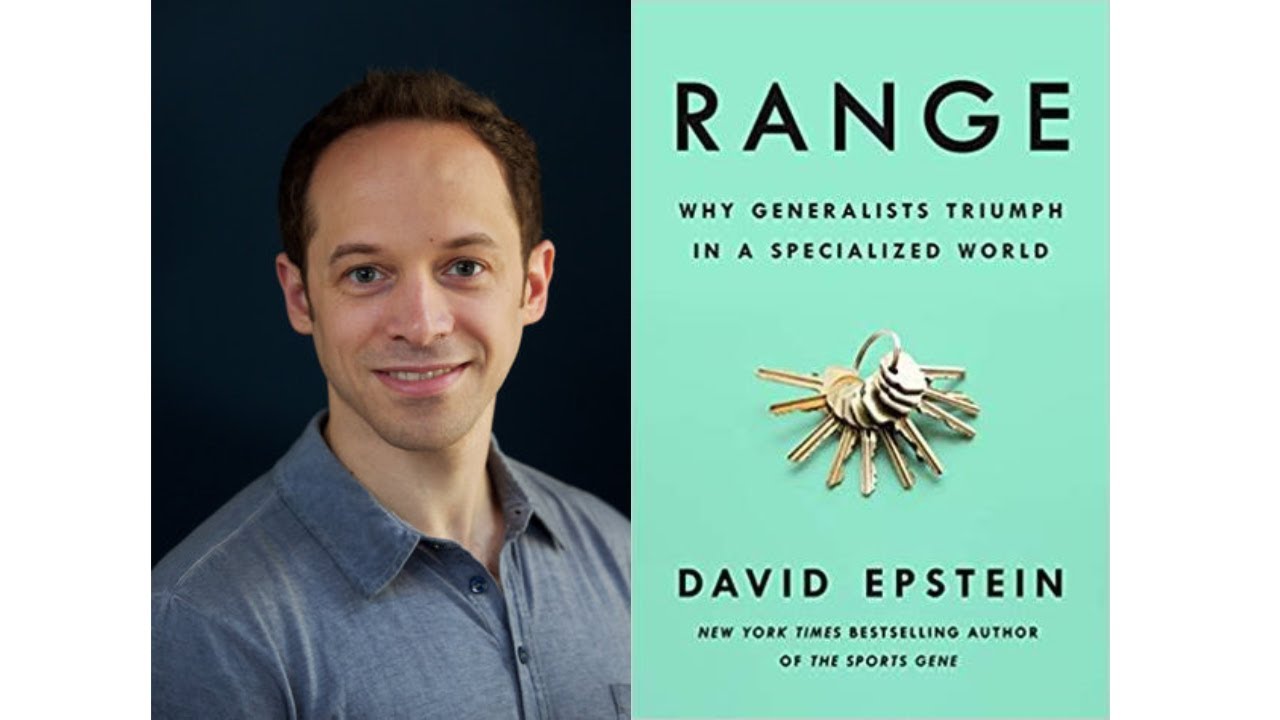You’re invited to a conversation with New York Times bestselling author David Epstein as he chats about his most recent book, Range: Why Generalists Triumph in a Specialized World.
This is a virtual event. Please click HERE to register.
What’s the most effective path to success in any domain? It’s not what you think.
Plenty of experts argue that anyone who wants to develop a skill, play an instrument, or lead their field should start early, focus intensely, and rack up as many hours of deliberate practice as possible. If you dabble or delay, you’ll never catch up to the people who got a head start. But a closer look at research on the world’s top performers, from professional athletes to Nobel laureates, shows that early specialization is the exception, not the rule.
David Epstein examined the world’s most successful athletes, artists, musicians, inventors, forecasters, and scientists. He discovered that in most fields—especially those that are complex and unpredictable—generalists, not specialists, are primed to excel. Generalists often find their path late, juggling many interests rather than focusing on one. They’re also more creative, agile, and able to make connections their more specialized peers can’t see.
Provocative, rigorous, and engrossing, Range makes a compelling case for actively cultivating inefficiency. Failing a test is the best way to learn. Frequent quitters end up with the most fulfilling careers. The most impactful inventors cross domains rather than deepening their knowledge in a single area. As experts silo themselves further while computers master more of the skills once reserved for highly focused humans, people who think broadly and embrace diverse experiences and perspectives will increasingly thrive.
About the Author: David Epstein is the author of the #1 New York Times bestseller Range: Why Generalists Triumph in a Specialized World and of the New York Times bestseller The Sports Gene, both of which have been translated into more than 20 languages. His writing has been honored by an array of organizations, from the National Academies of Sciences, Engineering, and Medicine, to the Society of Professional Journalists and the National Center on Disability and Journalism, and has been included in the Best American Science and Nature Writing anthology. His story “Following the Trail of Broken Hearts,” on sudden cardiac death in athletes, was chosen as one of the top 100 stories of the last 100 years by Columbia Journalism alumni. He has master’s degrees in environmental science and journalism and lives in Washington, DC.
This event is generously sponsored by the Lenox Library Association and the Lee Bank Foundation.



